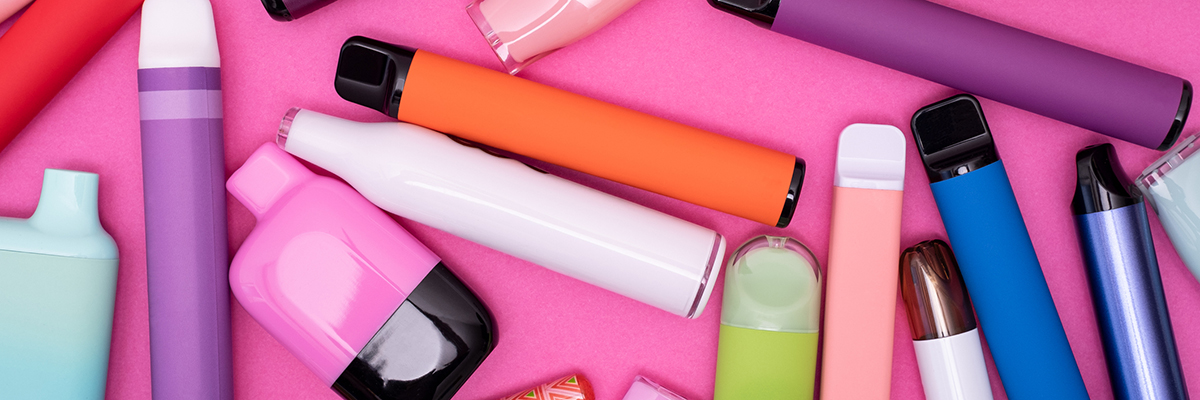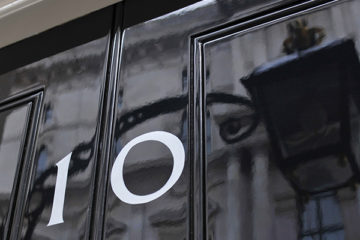
NASUWT – The Teachers’ Union is calling on the Government to do more immediately to protect children from the dangers of vaping, as a survey by the union has found 85% of teachers believe vaping is a problem on school premises.
The survey, which analysed responses from 4000 teachers in the UK, revealed that many pupils between the ages of 11 – 16 are vaping regularly, causing widespread issues with health, safety, behaviour, and damage to school property.
75% of teachers stated that vaping has increased in schools over the past year—on average, they said the problem has grown by 25%—but only 20% believed that their schools had effective policies to deal with vaping. While most respondents were teachers in secondary schools, some primary teachers reported pupils as young as ten bringing vapes into school.
The findings have been released after the Prime Minister announced the Government will look at 'measures' to restrict the availability of vapes to children, and as the Government launches a consultation on vaping policy. NASUWT argues this is not a strong enough commitment given the widespread use of vapes by young people that has occurred in no small part due to lax regulations and a lack of affirmative action from the Government.
Over half (54%) of teachers reported that some pupils repeatedly leave lessons in order to vape, while a third (35%) report that some pupils are struggling to concentrate in lessons due to the effects of nicotine.
“This impact on concentration and learning is unacceptable, and lies at the hands of the Government. Despite a growing body of evidence, it has failed to address the public health emergency of vaping amongst children and young people,” says Dr Patrick Roach, General Secretary of NASUWT.
While the legal age for purchasing vapes is 18, this latest survey data shows that vape products are being purchased and consumed by a large and growing number of younger people. Multiple teachers who responded to the survey feel that marketing is significantly contributing to the issue; as vapes with sweet flavours are designed to appeal to young audiences.
More than one respondent recalled seeing vapes that were packaged to look like school highlighter pens.
Teachers also reported that retailers are selling vapes at low cost and to students who are wearing school uniform, while other pupils buy from individuals acting as “dealers.”
The worrying findings come at a time when top health experts have recognised that the messaging around vaping being 95% safer than cigarettes has encouraged children who would never have smoked to take up vaping.
Dr Roach added:
“Our survey of teachers should be a wake-up call to the Government.
"As well as looking at their own interventions, the Government must hold vape manufacturers and retailers to account. Selling vapes to under-18s is illegal, and needs to be tackled robustly. Furthermore, marketing nicotine products to children and young people through the use of sweet flavours and bright packaging must be stopped.
“A ban on disposable vapes, which are popular with teenagers and terrible for the environment, must be seriously considered.
“If vaping in schools becomes normalised, it poses a huge health risk to pupils and teachers. The government must act now and provide schools with resources to deal with this issue before it is too big to tackle.”
NASUWT is also calling for research around the dangers of vaping, as well as better provision for schools to address the risks of vaping within their RHSE lessons.
Furthermore, the union supports the Royal College of Paediatrics and Child Health (RCPCH) recommendation that the Government should revise the Tobacco and Related Products Regulations(TRPR) for e-cigarettes (vapes) and e-liquids to require plain packaging of e-cigarettes and nicotine and non-nicotine e-liquids packs.
Notes to Editors
The NASUWT’s Vaping in Schools survey was carried out in mid-September 2023 and received responses from 4000 members. The survey was commissioned following the release of the recent NASUWT Behaviour in Schools report, where many teachers reported that nicotine addictions from vaping were causing behavioural issues in pupils.
As part of the vaping survey, teachers were asked for comments on their experiences of issues around vaping in schools. Here is a small selection:
“Pupils using vapes to self-regulate their emotions, major cause for concern.”
“Students vaping THC and being sick, passing out and being high whilst on school premises.”
“Pressure for students to buy/sell vapes; students buying from "dealers" - a bit like drug abuse and county lines.”
“Pupils admitting to addiction but refusing support from external agencies, and an escalation from vaping nicotine to THC and marijuana.”
“Choreographed movements by vaping students/buddies working in ‘relays’ masquerading as toilet breaks during lessons.”
“Students who would not have tried smoking are willing to try vaping due to the flavours and smell.”
“It isn’t just the ‘rebellious’ students who are vaping. Students considered to be more studious are also vaping.”
“There has been an increase in fire alarms due to vaping. This had a negative impact on teaching and learning.”
“Impossible to control without policing the toilets, which has privacy issues.”
“Many pupils who are known vapers have coughs.”
“Students are very open about vaping and feel that it poses no risk to their health despite PHSE lessons to the contrary.”
“It’s getting worse. Students who don’t vape are afraid to go to the toilets and are training themselves to not go/not drinking enough.”
“The pupils are finding new places to hide vapes faster than staff can find them.”
“4 children vaping on and outside the premises in my 2022/23 class. Year 5.”
“Children are picking up disposed vapes from the ground and using them.”
“Constantly evacuated because of the fire alarms going off. Can be 5 times a day.”
“Vaping culture has been promoted heavily within the local community so it’s had an effect on students, as it is normalised outside of school.”
“Vaping is also with THC/ CBD and pupils will talk about this, aloud or in a random announcement during lesson.”
“Most students start vaping during Y7. I would estimate at least 40% of students in my school are vaping by the end of year 7 - just a few years it was rare.”





